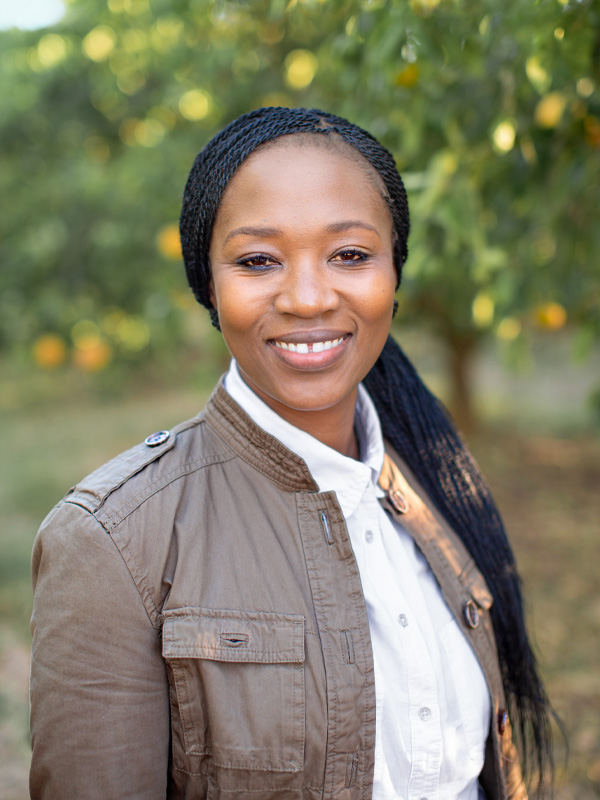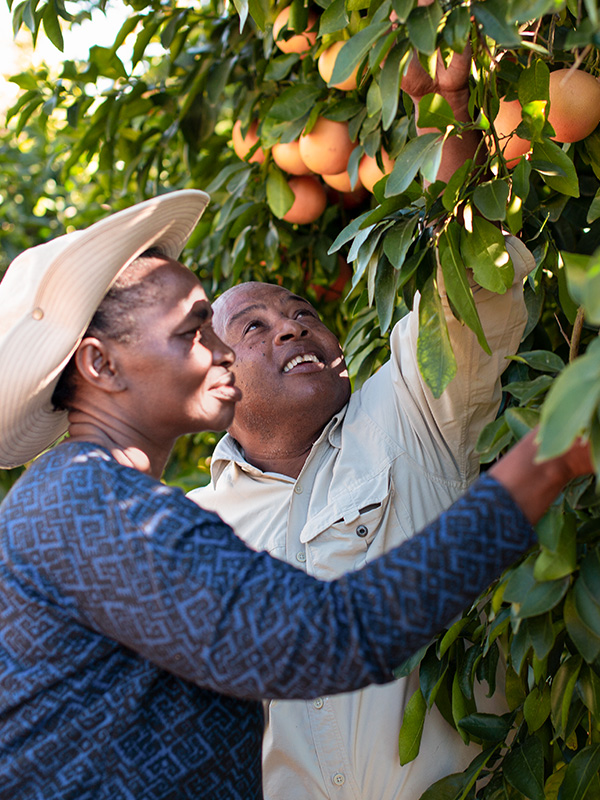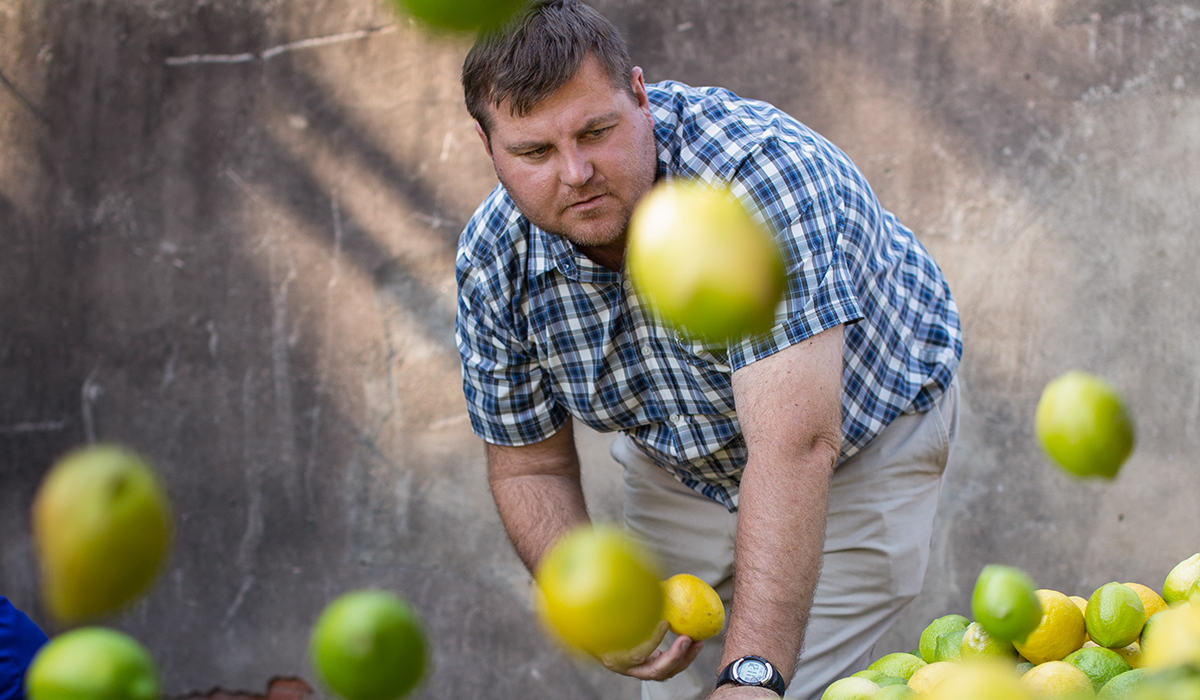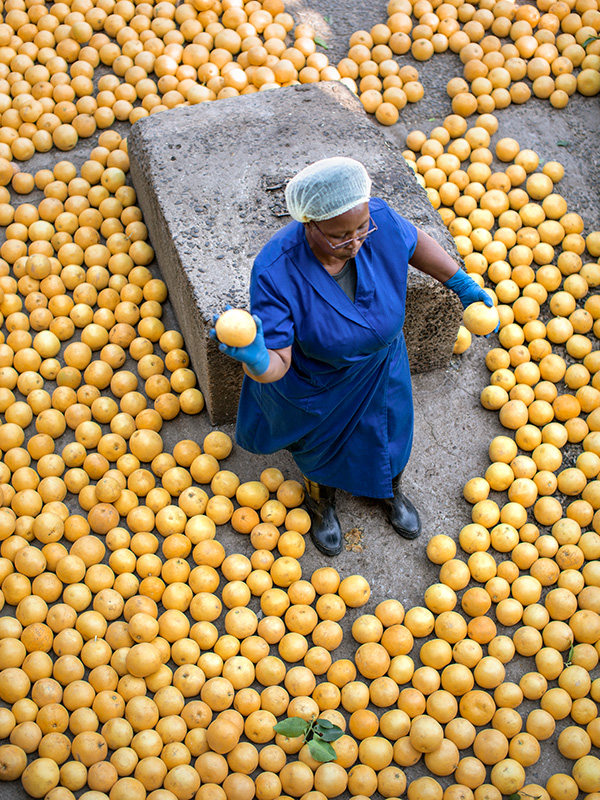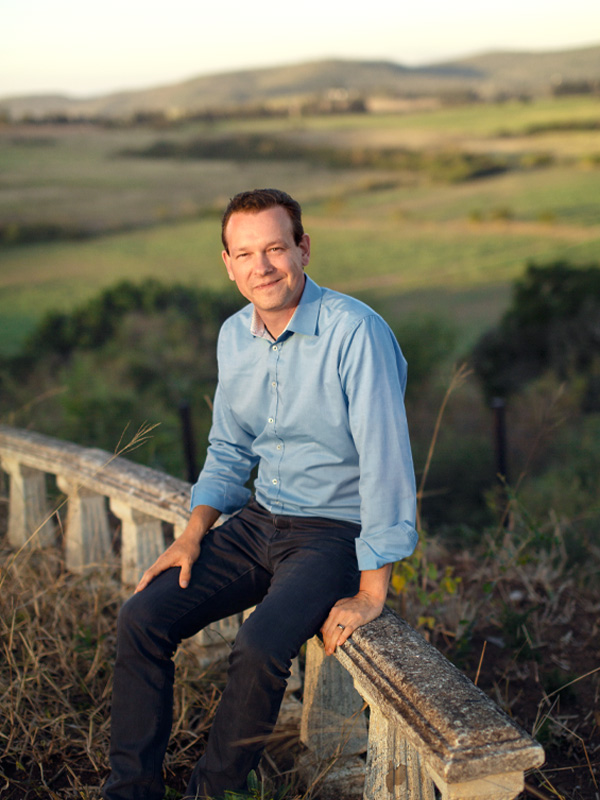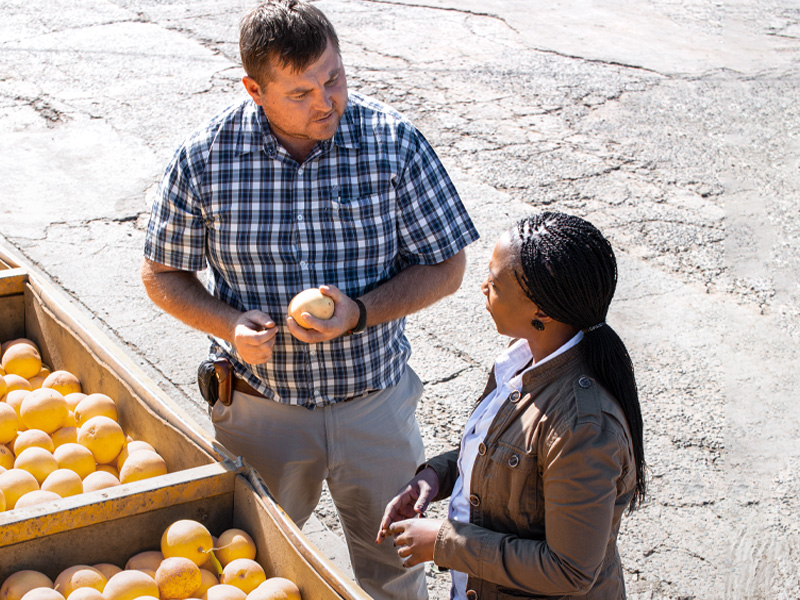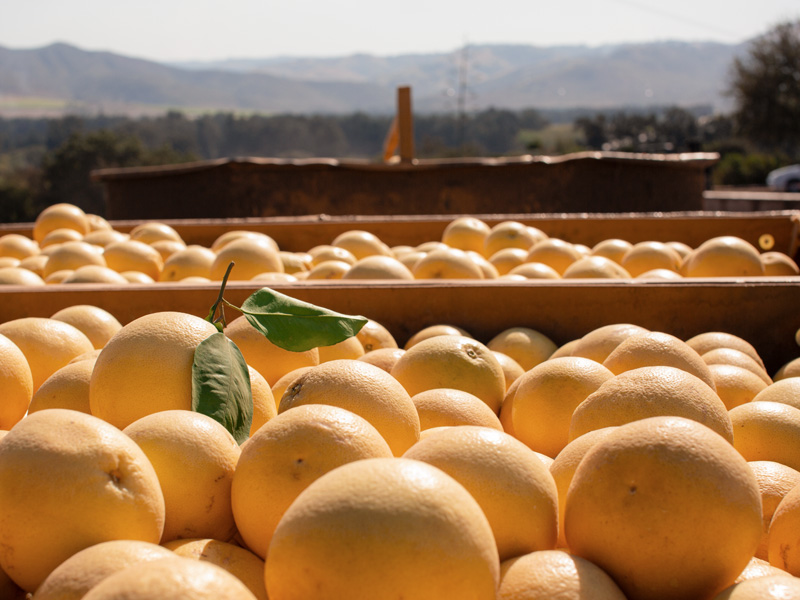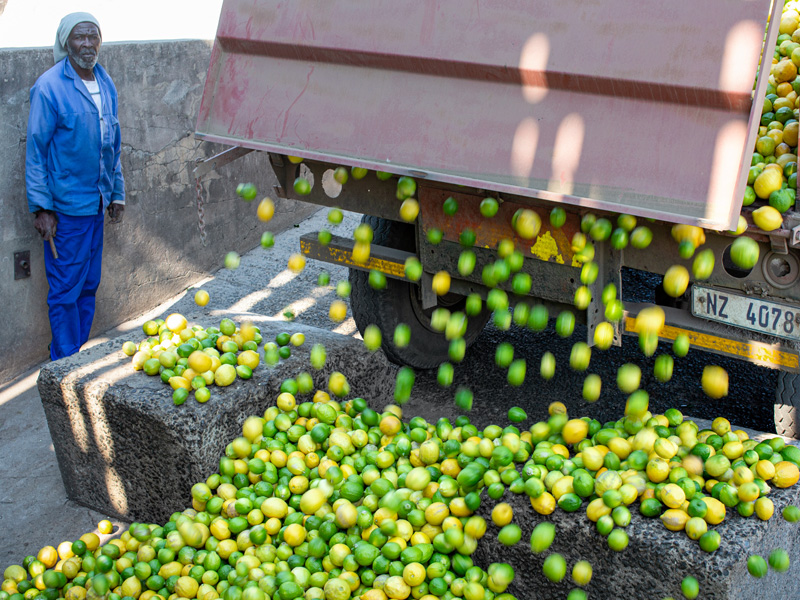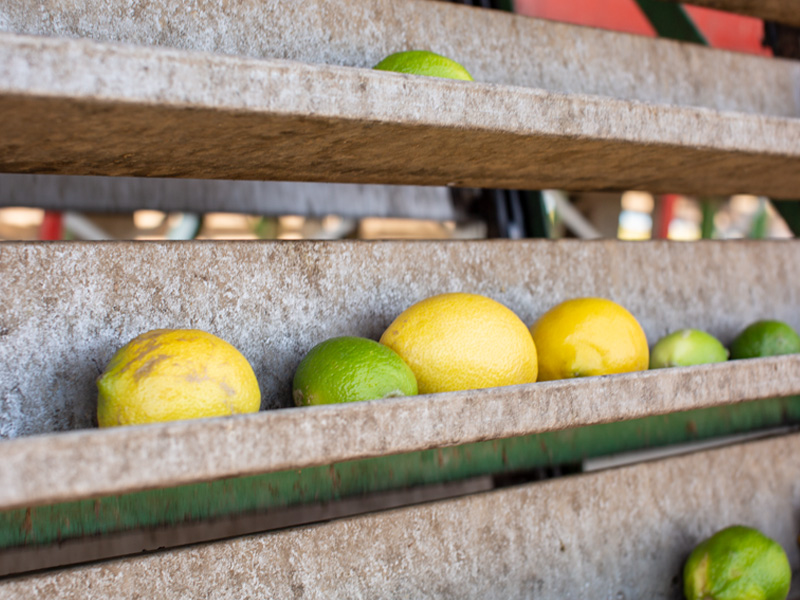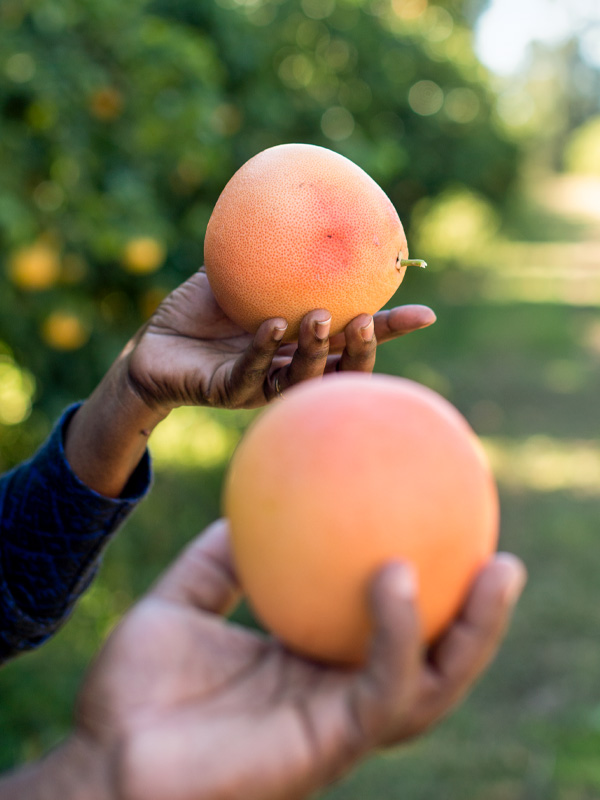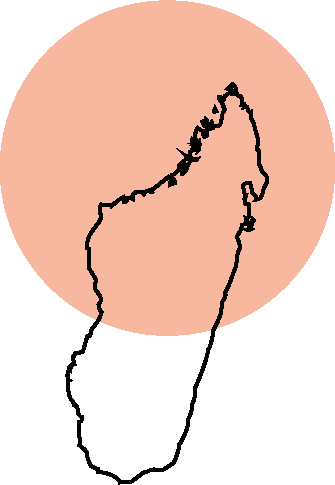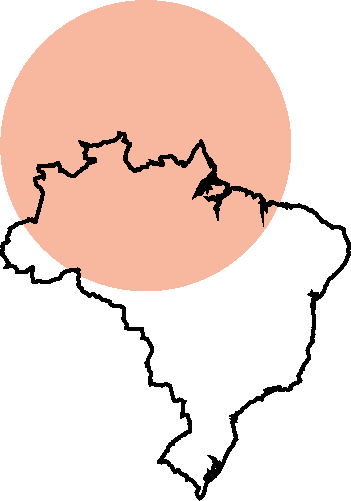The world of citrus fruits is as varied as their use in food and beverages, in cosmetics, household cleaning products and perfumes. Oranges, lemons, limes, mandarin oranges and bergamots lend a product freshness, sweetness or sourness; they provide the primary flavor and a certain taste or scent. Grapefruit is becoming increasingly important for Symrise. Though it only represents a small proportion of the citrus fruit portfolio, its growth is particularly strong.
One challenge with this fruit, though, is that there are problems with supply in Florida, one of the key cultivation areas. Diseases such as citrus greening as well as severe hurricanes have destroyed entire harvests. In the past years, the harvest yield has averaged about 10 to 15 % of the yield 20 years ago.
For this reason, Symrise went looking for alternatives – and found one in South Africa. In the province of KwaZulu-Natal, the company sources high-quality raw materials; it also supports sustainable development in the region through projects and close collaboration with suppliers and farmers.

